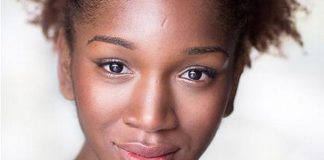
Following sold-out runs at the Apollo Theatre, Royal Court Theatre and New Diorama Theatre, Ryan Calais Cameron’s Olivier Award-nominated, multi award-winning For Black Boys Who Have Considered Suicide When The Hue Gets Too Heavy returns to the West End for a limited 9 week run at the Garrick Theatre. We had the pleasure of catching up with four of the six new cast members a few days before opening night – Tobi King Bakare (Onyx), Albert Magashi (Sable), Fela Lufadeju (Jet) and Posi Morakinyo (Midnight).
Congratulations, FBB (For Black Boys…) is now open. How are you finding the performances so far?
Tobi King Bakare (TKB) – plays Onyx: It’s going great; it feels like the audience is really hearing the content and connecting with the stories. I’m so proud of where we are, and we’re still cooking!
Albert Magashi (AM) – plays Sable: It’s going well. We’re still discovering, and I’m constantly amazed by what my castmates are managing to do onstage. I came in with a lot of pressure on myself, but realising how amazing my support system here is has been such a pleasant surprise. It’s been fun navigating the new relationship with the audience; there’s a real give and take there. By the third preview, it felt like we’d found our footing.
How have you found performing such emotionally raw and relatable characters?
Fela Lufadeju (FL) – plays Jet: I was apprehensive about being in the show because I know the challenges, as a Black queer man, to come out and be seen. As a character, even Jet is quieter when talking about love, and his shame hits home. But here, I feel held; I don’t have to overexplain.
Albert Magashi (AM) Even auditioning, I felt I understood Sable. For better or worse, there are aspects of him that I relate to. So I’ve had to think the opposite – finding differences between us to remind myself I’m not that guy.
Tobi King Bakare (TKB): It’s nourishing me. Onyx is challenging because he’s one of the most recognisable characters for reasons that probably aren’t right. I feel honoured to subvert this through his story – showing his deepest vulnerabilities. I’m a cry-baby actor; I’m always crying! So it’s nice to pour that into such a hardened character. Onyx, as people may think of him, is very stiff but then has moments of agility and flexibility. And I think to be strong, you need to be able to flex. This process has been like breaking down the muscle and building it back up.
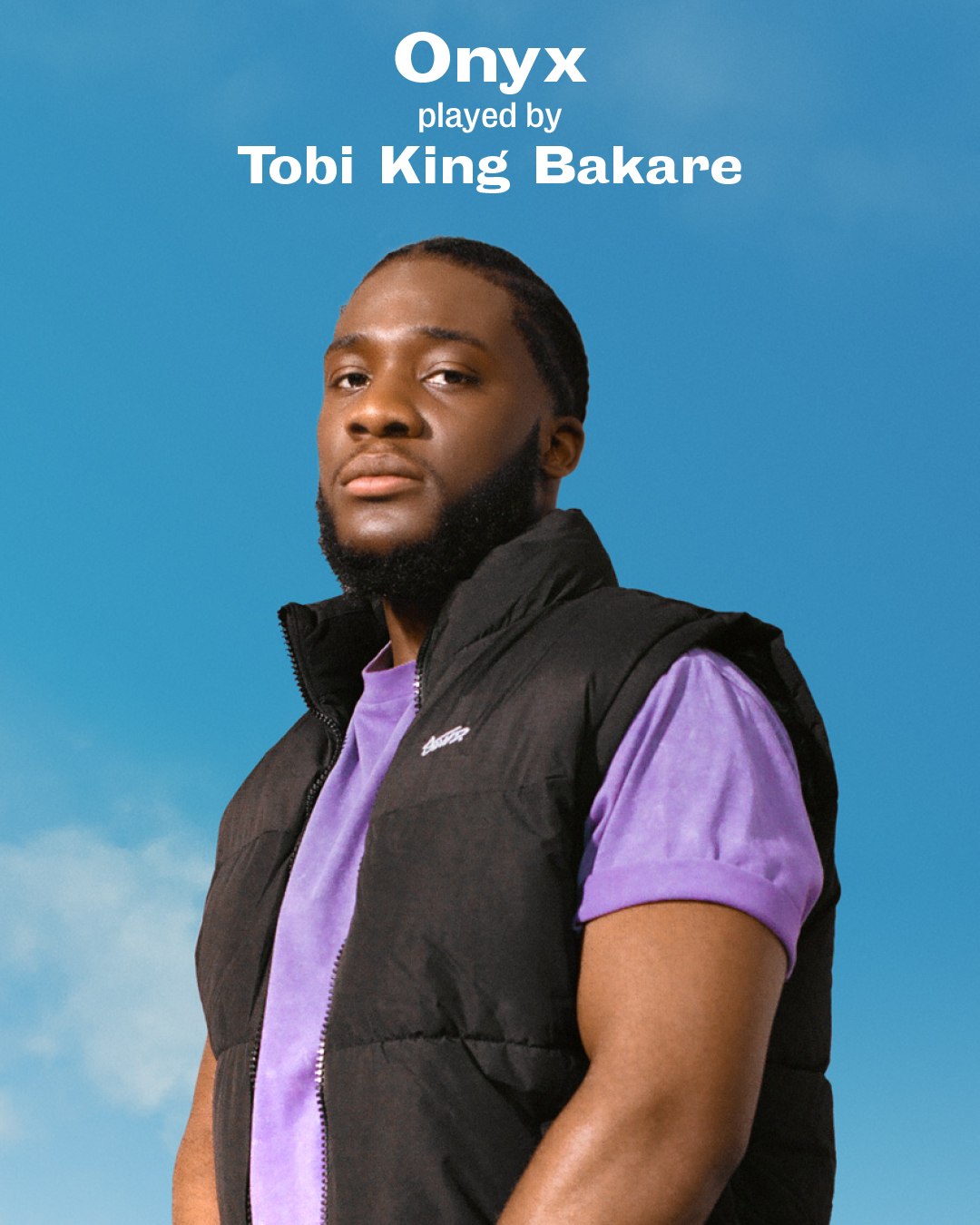
What has been the biggest surprise on your journey with the show so far?
Posi Morakinyo (PM) – plays Midnight: When I first saw FBB at the Apollo, I was quite shocked. I was seeing ‘Posi’ on stage, with no shiny, motivational ‘Black’ back story. And I was like, “Is that allowed to be there?” Then, walking away from the work, I was like, “Wow.” So, to now be a part of the cast is still wild to me. And a true honour. Since performing, the biggest surprise has definitely been the love. I’ll be honest; from rehearsals to the first preview, I wasn’t confident. I didn’t know how people would respond to the work, but the reaction has blown my mind.
Fela Lufadeju (FL): I’ve tried not to expect anything, but I didn’t want it to be traumatic! And it hasn’t been at all; it’s been an illuminative discovery working with five other Black men. It’s absolutely exceeded my expectations in the way I’ve felt seen and heard.
Has the performance changed now, having a live audience?
Posi Morakinyo (PM): Personally, I’m taking more confidence in my work. I’m no longer performing; I’m embodying. After the first preview, the energy shifted. Even in my vocals I’m not shouting, I’m not pushing, I’m just telling the story. We’re focused and dialled in. With the audience, it becomes a cast of seven rather than six. And no audience will ever be the same – the energy is always unique. It’s like having a cast member who is constantly rotating out! And that excites me – how I communicate will change each night because I’m talking to different people.
Fela Lufadeju ( FL): I’ve done shows where I directly address the audience before, but this feels completely different because there’s a Black audience. Performing to a few people in rehearsals, you forget how much of our shared lived experience is in the text. So, it’s been a gift to perform and discover new moments that resonate with the audience, as it resonated with me.
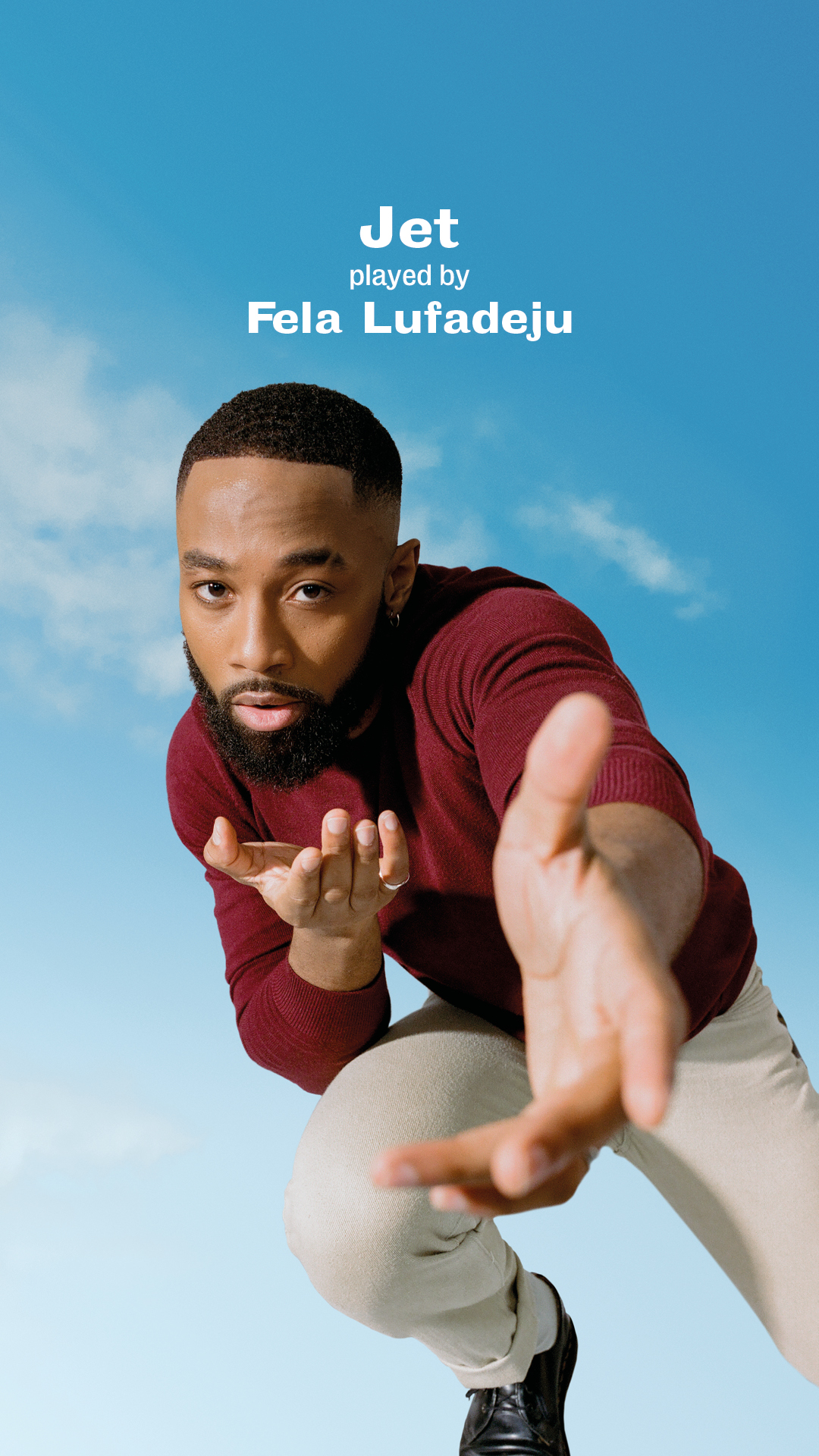
FBB has a Black cast, creative team and stage team. How has it been all working together with writer/director Ryan Calais Cameron?
Tobi King Bakare (TKB): We’re a brotherhood. This is my first experience working with a Black-led creative team. It’s created a space where you don’t have to hide; you can lay out your soul, and people will hold you. Realising how much of myself I’ve held back before is bittersweet. But I’m so grateful to Ryan for creating this positive space.
Posi Morakinyo (PM): It feels like a family – I love sweet foods, and what did I find in my dressing room today? Muffins and my favourite drink. It’s just love. And Ryan, what a guy. I’m grateful to know him as a person. His strength lies in his humanity; his work is so personal yet universally received. He’s just so down to earth.
How has it felt bringing FBB to the West End, a traditionally white space?
Fela Lufadeju ( FL): In the wake of BLM, I’ve felt that the West End has needed an uprooting. This show feels like part of the catalyst of change. We need plays that aren’t speaking to the mainstream lens. I’m grateful to be part of the journey of this play, and I’m excited to see how it continues to change the industry.
Albert Magashi (AM): My favourite line of the play is, ‘I release myself of the versions of me I created to stay alive.’ I hope people can come here and finally feel that.
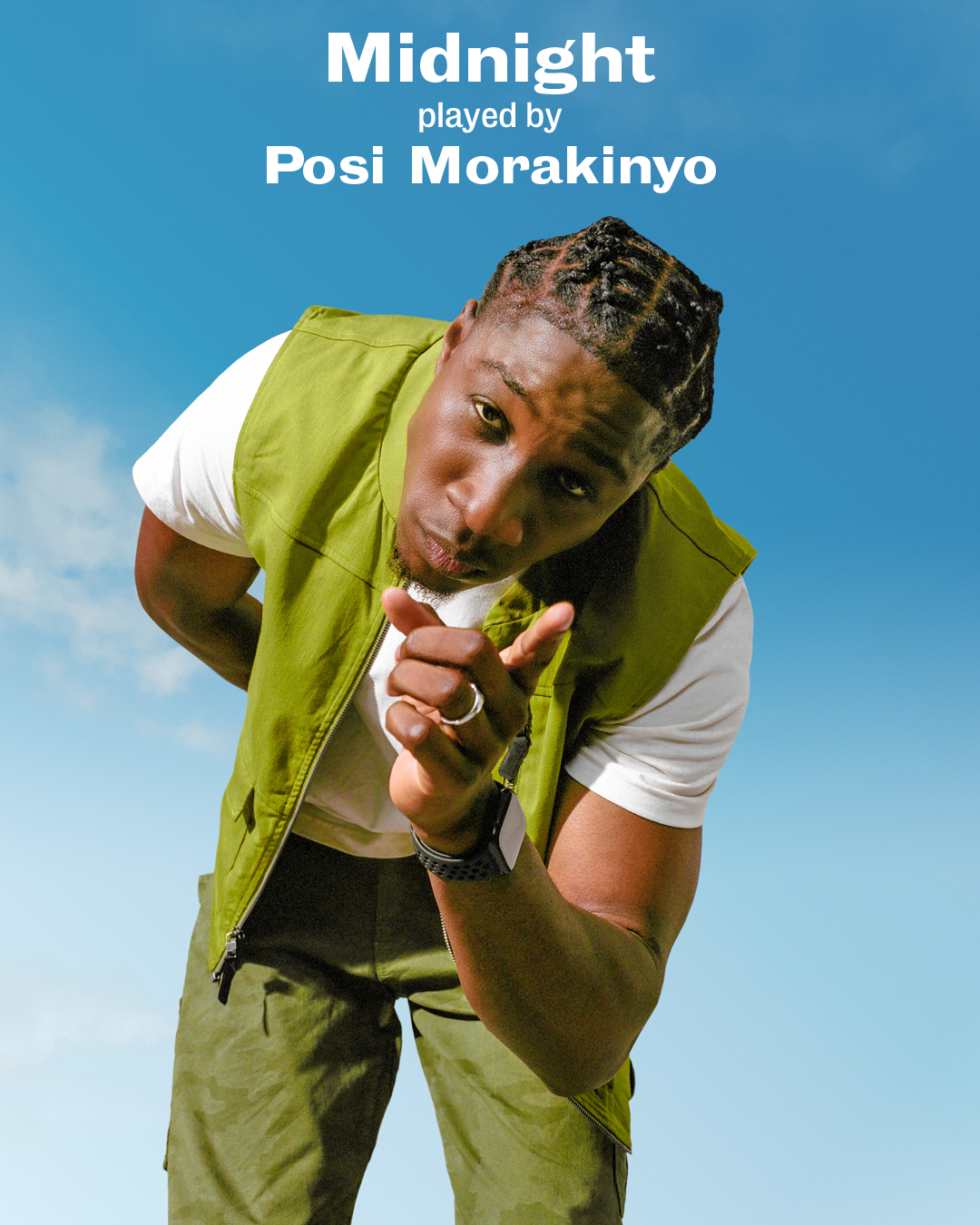
How are you finding the reception of your performances?
Tobi King Bakare (TKB): Generous. I’ve been surprised by it every single night; people are getting up and hollering at us. And from the people I’ve met after the show, I can see its impact. The show is about empowering people to share their stories, so seeing that happening is incredible.
Posi Morakinyo (PM): This show feels like ours. For the past four performances, most of the people on the front row have been Black. That’s fuelling me in ways I didn’t expect. And I’m so honoured that people are celebrating not only the show, but us! I especially love meeting the kids my old drama teacher has taught – shout out, Miss Clinton!
Fela Lufadeju ( FL): It’s overwhelming. We’ve only had four performances, but someone came up to me in the gym yesterday. And really, I was taken aback because the Black demographic of my gym is so small. But it reminded me that this play has a far reach within the Black community, and that’s what it’s about.
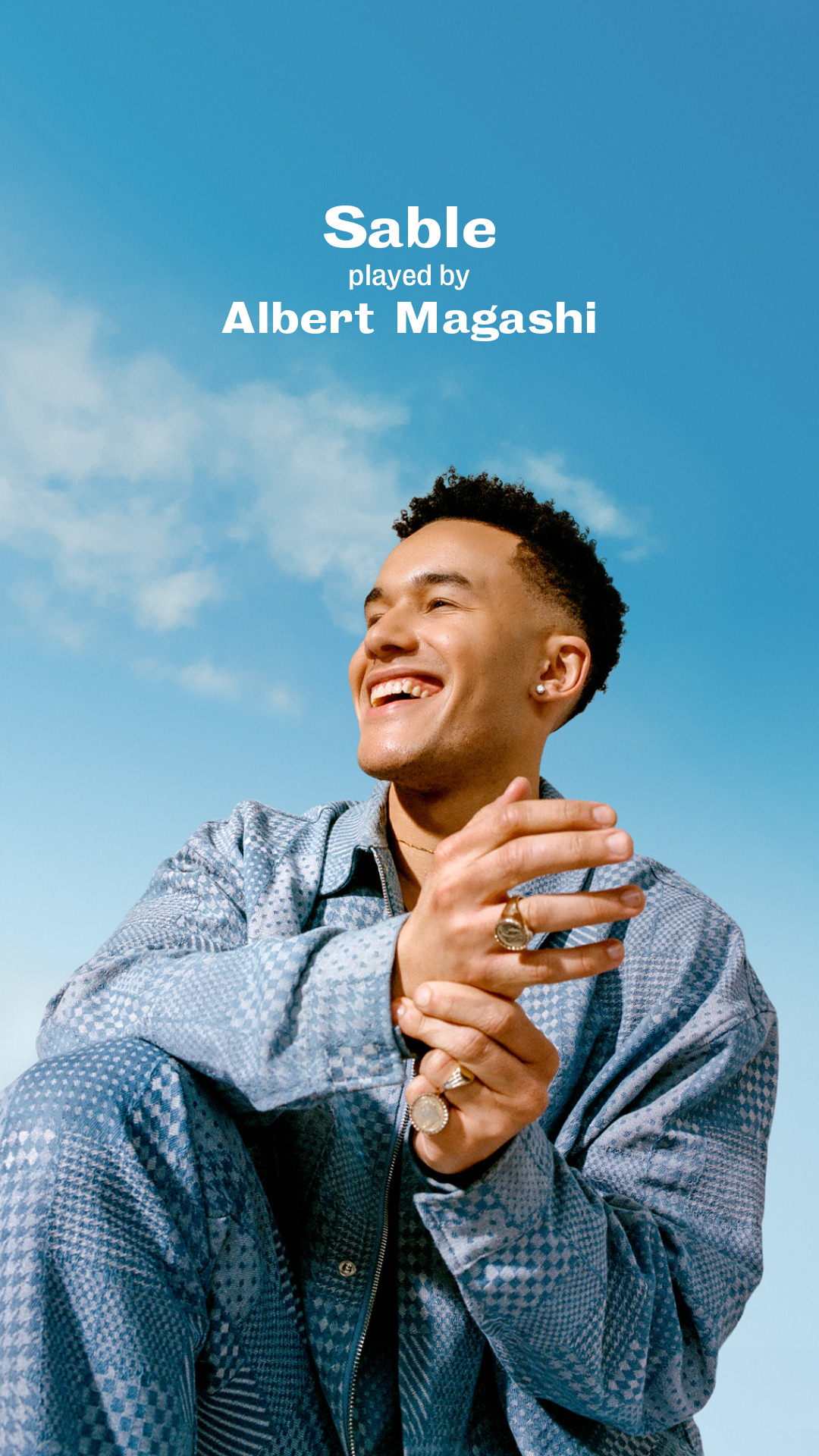
Related links
Read our 2024 Garrick Theatre review of For Black Boys…
Read our 2023 Apollo Theatre review of For Black Boys…
Read our 2022 Royal Court Theatre review of For Black Boys…
Read our 2021 New Diorama review of For Black Boys…
Interview with Ryan Calais Cameron (Writer) and Tristan Fynn-Aiduenu (Director)
Afridiziak x Dope theatre meet up pic – For Black Boys, May 2023

























